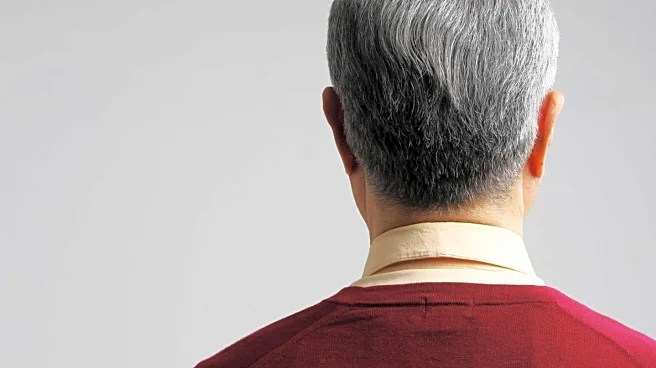What's Happening?
Aging brings significant changes to individuals' bodies, minds, and relationships, often catching them unprepared due to societal emphasis on youth. Erlene Rosowsky, a clinical psychologist specializing in aging, notes that society's obsession with anti-aging contributes to ageism and the illusion of control over aging. As people experience aging, they may find younger generations lack understanding of these changes. Rosowsky, who is 82, discusses how aging affects health, cognitive abilities, and mobility, altering one's sense of self and relationships. Despite these challenges, individuals can adjust, as demonstrated by Arielou Marcy, 86, who has adapted to life changes after losing her husband and dealing with scoliosis. Rosowsky suggests adult children can help aging parents by listening, understanding their needs, and respecting their autonomy.
Why It's Important?
The societal focus on youth and anti-aging can lead to ageism, affecting how older adults are perceived and treated. Understanding the realities of aging is crucial for fostering empathy and support for older generations. As the U.S. population ages, addressing ageism and promoting healthy aging becomes increasingly important for public policy and social dynamics. Adult children play a vital role in supporting their aging parents, which can improve family relationships and the well-being of older adults. Recognizing the challenges and adjustments required in aging can lead to better societal support systems and reduce the stigma associated with growing older.
What's Next?
As awareness of ageism grows, there may be increased efforts to promote positive aging and support systems for older adults. This could involve policy changes, educational programs, and community initiatives aimed at reducing ageism and improving the quality of life for aging individuals. Adult children may seek resources and guidance on how to better support their aging parents, leading to improved family dynamics and caregiving practices. The conversation around aging and ageism is likely to continue evolving, with potential impacts on healthcare, social services, and cultural attitudes towards older adults.









